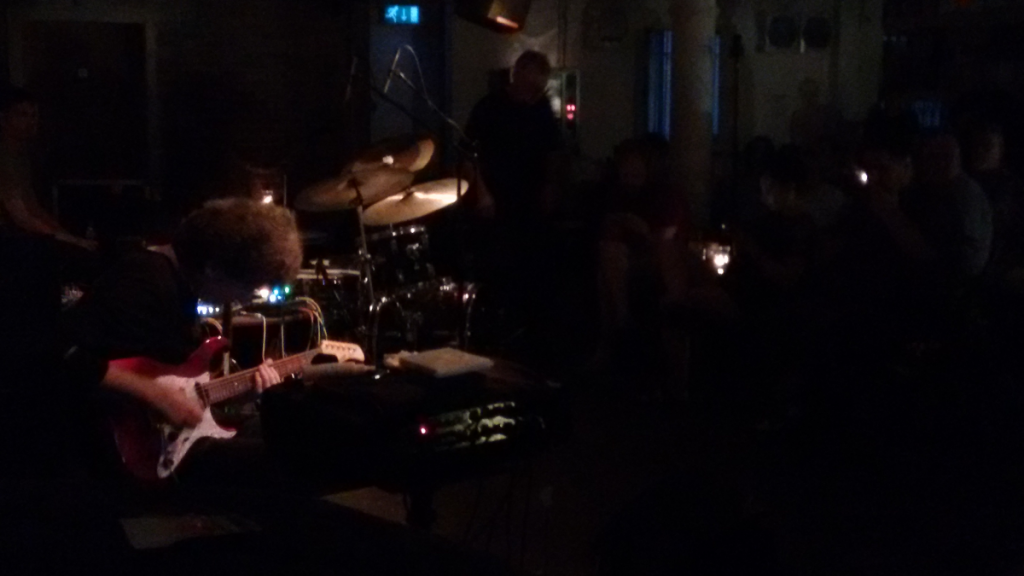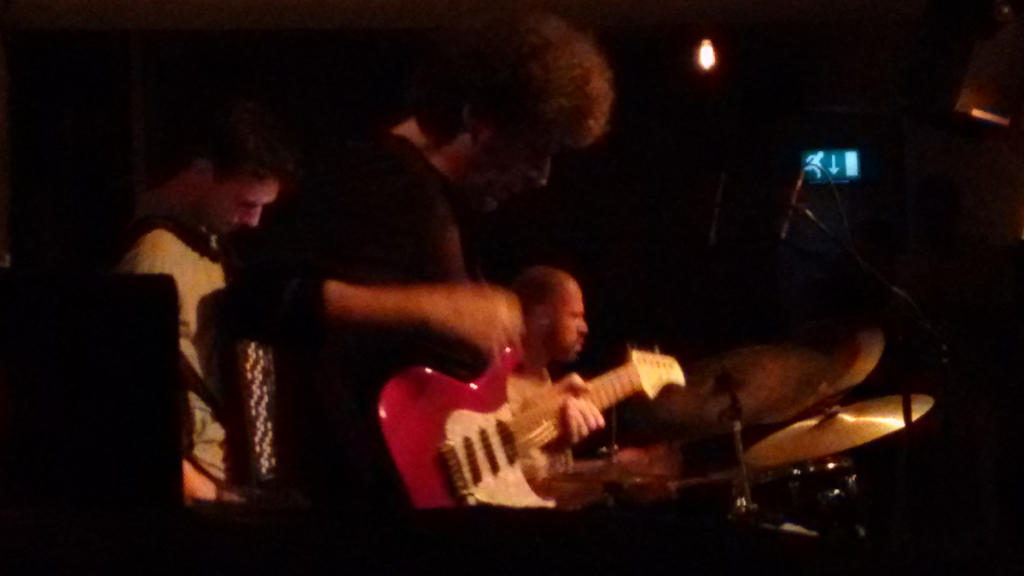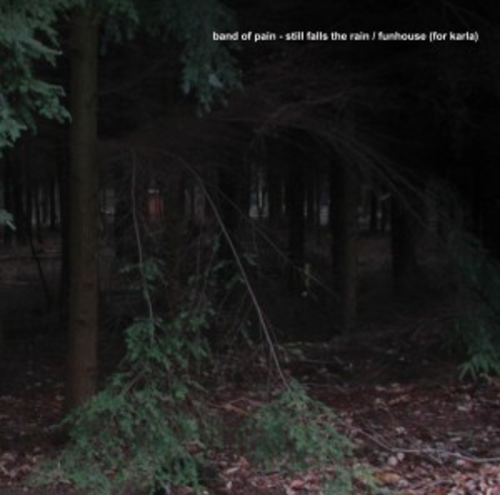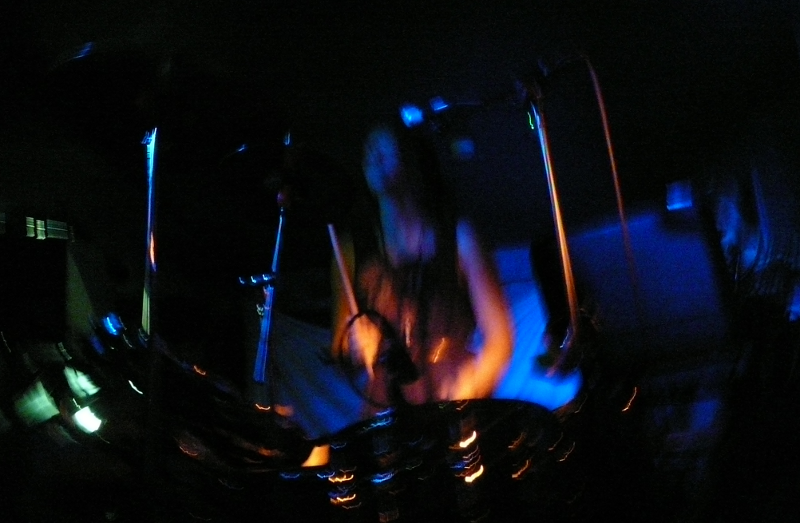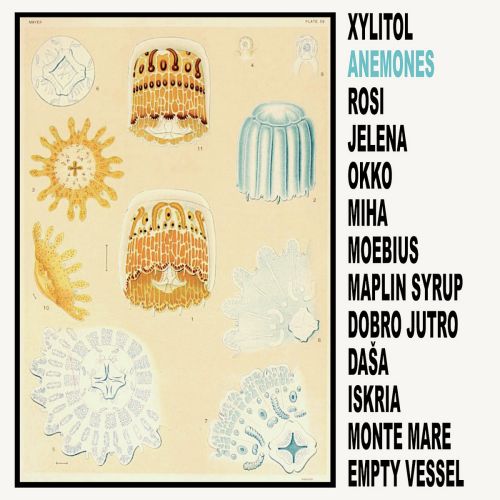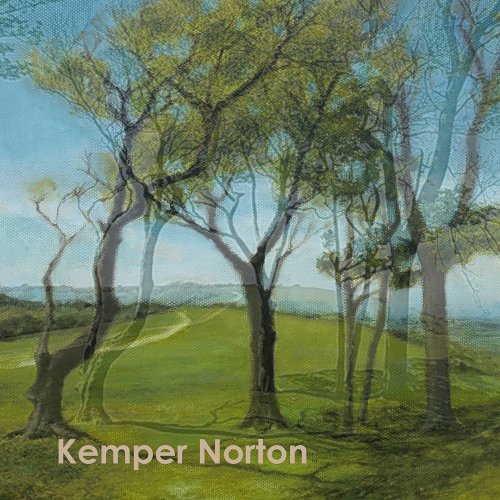London
14 July 2018
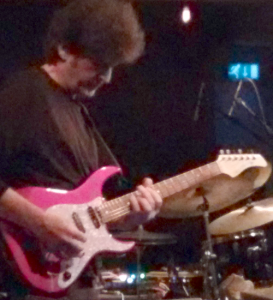 Ah, those summer OTO nights. It’s so hot in here that I can almost feel the electrolytes leeching from my body. With my dotage rapidly approaching, this is one of those sauna-with-the-clothes-on experiences which I really wouldn’t put myself through anymore were it not for the presence of genuine greatness.
Ah, those summer OTO nights. It’s so hot in here that I can almost feel the electrolytes leeching from my body. With my dotage rapidly approaching, this is one of those sauna-with-the-clothes-on experiences which I really wouldn’t put myself through anymore were it not for the presence of genuine greatness.
I attempt to combat the sweltering heat by loading up on cold English cider and, miraculously, I even manage to find a free chair. To be sure, it transpires that the upholstered seat is now so structurally-compromised and threadbare as to be practically useless, but by some fortunate happenstance the intact wooden frame is exactly the right shape for my arse, and so actually proves surprisingly comfortable. It does remind me slightly of the chair that Le Chiffre uses to torture James Bond with in Casino Royale, but as long as that shadowy financier of international terrorism doesn’t turn up swinging his knotted rope at my delicate parts, I should be alright.
First on tonight are Hirvikolari. Featuring Sam Barton and Mike Bourne, one half of Teeth Of The Sea, they summon up a delightful cocktail that mixes one measure of trumpet with two of squalling modular synth and sundry effects. Rising and falling like the ocean swells, the set somehow seems to suit the oppressive heat. When incorporating trumpet into this sort of context it’s difficult, if not nigh on impossible, not to end up straying into early Seventies dark electric Miles Davis territory just by virtue of the instrumental signatures. However, Hirvikolari manage the admirable feat of not dwelling on this unduly, and sculpting a dynamic that is very much their own.During the changeover, I return to the bar and move onto the sweet French Breton cidre. Back in my seat at stage left, leaning floppily on quilt-covered piano, my cidre seems an appropriately Gallic beverage with which to toast the arrival of the illustrious Frenchman now moving to centre stage and making initial preparations with his red guitar. Nom de dieu, finally, Richard Pinhas moves amongst us!
I first became acquainted with Monsieur Pinhas and the mighty Heldoni many years ago when plunging from the high diving board that is the Nurse With Wound List straight down into the deep waters of the Seventies French lysergic pool. Once submerged below the waterline, I was utterly flabbergasted, for amidst its mysterious currents swam species of exotic and incredible fish that were entirely new to me, names never mentioned even in the most outré of circles: Igor Wakhevitch, Horrific Child, Spacecraft, Pascal Comelade, Red Noise, et al. As with one of those archetypal dreams in which one unexpectedly discovers a plenitude of previously unknown rooms in one’s own house, suddenly there were dazzling new vistas to explore. It was thrilling and unnerving in equal parts.I embraced such exploration eagerly, keen to get my grubby little mitts on some swag lesser-known. And when I opened the door to a room marked Électronique Guérilla, I knew instantly that this was something truly special. From the first throbbing, reverberating analogue pulses of “Zind”, the opening track, this was clearly an album to treasure, not just as the latest thrilling fancy du jour, but as a work of deep and profound significance that one could return to for a long time to come.
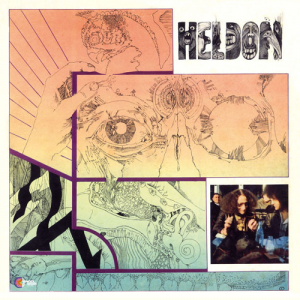 Recorded on a home studio set-up in Paris in the mid-Seventies, Électronique Guérilla still sounds as fresh, innovative and exciting as anything I can bring to mind. Mixing guitar, electronics – courtesy of the legendary AKS and VCS3 machines of the era – and the occasional vocal, this is avant-rock of the highest purity. And lest we forget, the French invented 50% of that nomenclature.
Recorded on a home studio set-up in Paris in the mid-Seventies, Électronique Guérilla still sounds as fresh, innovative and exciting as anything I can bring to mind. Mixing guitar, electronics – courtesy of the legendary AKS and VCS3 machines of the era – and the occasional vocal, this is avant-rock of the highest purity. And lest we forget, the French invented 50% of that nomenclature.
Quickly getting hold of the companion piece album It’s Only Rock And Roll (it’s a toss of a coin as to which I actually prefer), recorded more or less contemporaneously and with the same set-up, I then hoovered up every Heldon release I could findii , and have followed Richard Pinhas’s solo output with glee ever since. Enthusiastic Pinhas-watchers have long looked on in awe as, before our very eyes, he mixed his philosophical interestsiii – famously studying for a PhD at the Sorbonne and associating with critical theory behemoths such as Gilles Deleuze and Jean-François Lyotard – with the more immediately sensory assault of avant-garde rock.
Yet, despite over four decades at the music-face, Heldon had never played in London. Until now. And to quote Pinhas’s countryman, François de La Rochefoucauld, absence diminishes mediocre passions and increases great ones, as the wind extinguishes candles and fans fires. Hence why, with every fibre of my overcooked body screaming to be at home with a cool breeze blowing in the through the windows and an ice-tea in the hand, I’m here in stewing in the July heat of Café OTO.
Taking the stage tonight, Heldon launch into the first of two savage, magnificent improv pieces. Lifting my jaw up from the ground where, agog with the aural mayhem unfolding only four feet in front of me, it has quickly sunk, it dawns on me that what is being played here is strangely uncategorisable. And that’s for a category Freq such as myself. Too structured for improv in the jazz-derived sense, too string-based to be electronica, too loose to be rock, this, ‘tis true, is a strange and slippery beast, a musical xenomorph not to be trifled with. Then, it comes to me. What they are playing is free rock, of the genre, but spontaneous and wild. Many have tried, and I mean many, but it takes a musician of Pinhas’s experience and genius (and I use that word advisedly) to pull it off. Whilst not necessarily at Sunn O))) or My Bloody Valentine levels of jack-hammer decibelage, Heldon’s sound somehow seems to pack just as much kinetic force into a smaller sonic surface area. I remember once, years ago, seeing a Japanese martial arts sensei called Master Sasaki striking and sounding a heavy metal temple bell from distance using only the power of his vocal shout, the kiai. Heldon feel as though they are doing a similar thing tonight. It’s not deafeningly loud, but it has so much concentrated energy that it feels like Mike Tyson has just delivered a hefty blow to one’s solar plexus. As if only to confirm this, someone tells me later that near to the end of the performance, a glass exploded on the table next to Pinhas from the power of his guitar alone. Really, nothing could make me happier.A second shorter piece takes the curve of the evening in an exponentially downward direction, until Heldon take their leave of us to a standing ovation.
It was worth the sweaty discomfort of the evening to witness this. Pinhas has a back catalogue breath-taking in its scope, complexity and volume, and it is truly a privilege to finally be able to witness him in the flesh. The following day, France win the World Cup, and there is much talk of witnessing “worthy heroes” and “the pride of France”.
It was old news to me, though. I’d already seen it.
-David Solomons-
i The band’s name is taken from a 1972 novel, The Iron Dream, by combative American science fiction writer Norman Spinrad. The narrative tells an unlikely tale in which Adolf Hitler emigrates to the USA in 1919 and becomes a science fiction illustrator, editor and author, writing a science fantasy novel called Lord Of The Swastika in 1953, shortly before dying of a cerebral haemorrhage.
ii Agneta Nilsson is a true high watermark of the band’s career: “…monstrous assaults of mellotron, the big Moog, electric guitars and shuddering bass that projects images of a sort of music Stockhausen might have done had he gigged with a rock band…” Tell me, who in their right mind could, or would want to, resist that?
iii Pinhas’s dissertation, for example, was entitled Science-Fiction, Inconscient et Autres Machins (Science Fiction, the Unconscious and Other Things) and concerned time and connections between science fiction, such as Frank Herbert’s cult novel Dune, and analogue electronic music.
